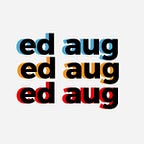‘Farha’ Review: The Barbarism of the Nakba
Netflix has gotten itself in hot water with many Israeli organizations over its decision to stream the Jordanian film “Farha” uncensored. The film, directed by Darin J. Sallam, follows the titular character, Farha (Karam Taher), as she grows up in a tumultuous time for the Palestinian region. Her father (Ashraf Barhom) is forced to balance both his duty to protect his daughter and his duty to protect the village he presides over. Set in 1948, war had been going on for some months now and it would not be long before it would reach their village. While the incoming warfare takes up much of her father’s time, Farha largely spends her days reading books and attending Islamic school. Her desire to further her education leads to her challenging typical gender norms as she insists upon her father to send her to school in the city. When he finally signs her enrollment form, Israeli soldiers invade the village. In a last ditch attempt to ensure her safety, Farha’s father locks her in a pantry, where most of the film takes place.
The film shows the barbarism of the Nakba- the destruction of Palestinian society and the exodus of the Arab population that had lived there for centuries. Its depiction of the Nakba has led to widespread condemnation by Israeli officials, but praise from Palestinians and their supporters. Very rarely seen on screen and almost completely denied by the State of Israel, “Farha” serves as a reminder of the atrocities committed in 1948.
